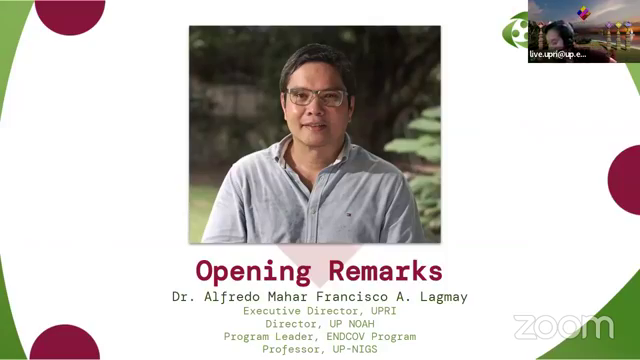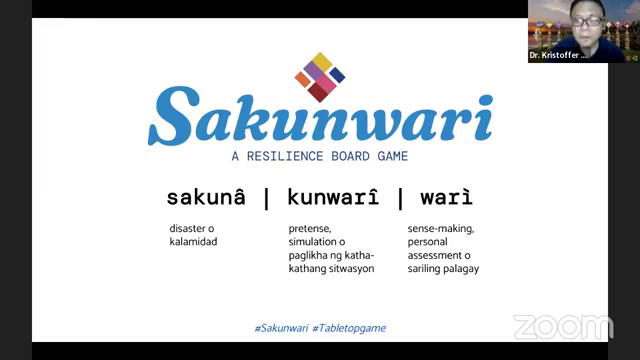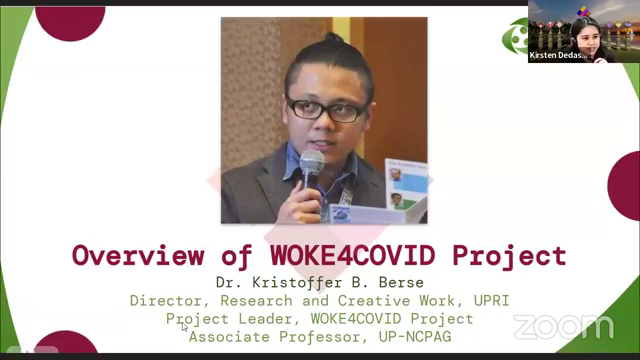The UP Resilience Institute (UPRI) virtually launched the disaster resilience board game, Sakunwari, on Feb. 11 via Zoom and livestreamed on its YouTube channel and Facebook page.
The Sakunwari board game is one of the outputs of UPRI’s Woke4COVID Project.
Woke4COVID Project aims to raise awareness, enhance disaster risk management, and help Filipinos arrive at informed and science-based decisions in dealing with COVID-19 and other disaster risks through the development of information, education, advocacy and training materials in multiple media, and in different languages.

Target. “We want to be able to use it for capacity-building. We are looking at it as kind of a serious game that’s really fun and we hope that while the main target are adult learners, particularly the disaster risk management practitioners at the local government unit (LGU) level, we also designed it in a way that it can be enjoyed by younger players or even game enthusiasts, students who just want to have fun and learn at the same time,” Prof. Kristoffer B. Berse, PhD, said.
He is UPRI Research and Creative Work director and Woke4COVID project leader.
Sakunwari is a portmanteau of sakuna (disaster), kunwarÎ (pretense; simulation), and warÌ (sense-making; personal assessment).
These three “encapsulate what we want to achieve through this game. We wanted to immerse the players in a situation where they have to deal with disasters and they have to make their own assessment and be guided by different options, including advisory services from other stakeholders, to make proper decisions, to ensure that they will be able to protect the development gains of their cities,” Berse said.

Features. Sakunwari features one region, six LGUs, and six mayors. The players of the game have to confront multiple complex disasters or cascading disasters that may come in the form of natural hazards, pandemic, climate change impacts, and human-induced crises like an armed take-over of a particular municipality or hostage-taking scenarios involving international personalities. The game has four response options: tolerate, terminate, treat, and transfer; and three advice options: do nothing, do something, and do something extreme. The game incorporated multi-sectoral advisers: economists, scientists, educators, media, and civil society, among others. Finally, after three rounds, there is only one goal: survive and develop as a city.
“Our main point is that it’s not enough that we survive disasters. We should be able to continue to develop,” Berse said.

Meanwhile, Prof. Alfredo Mahar Francisco A. Lagmay, PhD, UPRI director, said he believes in Sakunwari’s potential.
“Being a game that simulates the management of pandemic, hazards, and complex disasters, it is undeniably reflective of the current situation we have been facing these past two years. Disaster after disaster. All in the middle of a global health pandemic. Sakunwari is a game that simulates the experiences of an LGU as they work together to manage the impacts of hazards and pandemics, all while protecting their people and developing assets. As an advocate and educator, I truly believe that there is a vast potential for games and simulations like this,” he said. For more on Sakunwari’s launching and on UPRI’s efforts, visit the UPRI Facebook page or click https://www.facebook.com/UPResilienceInstitute/videos/250364423931299.
(This article, written by Mariamme D. Jadloc, was first published in the UPD Website on February 24, 2022)
